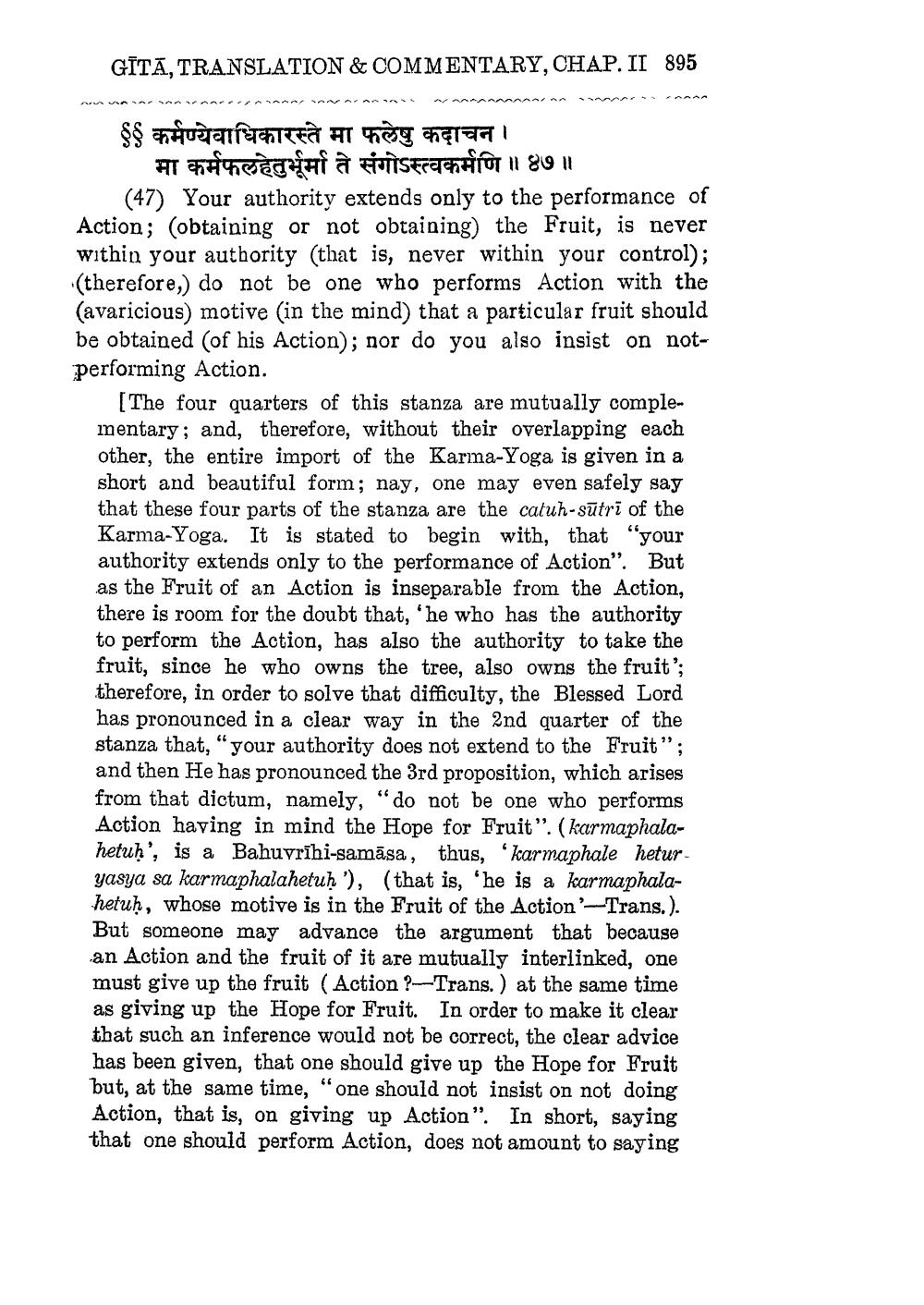________________
GĪTĀ, TRANSLATION & COMMENTARY, CHAP. II 895
AAA YANACA
SS कर्मण्येवाधिकारस्ते मा फलेषु कदाचन ।
मा कर्मफलहेतुर्भूर्मा ते संगोऽस्त्वकर्मणि ॥ ४७ ॥
(47) Your authority extends only to the performance of Action; (obtaining or not obtaining) the Fruit, is never within your authority (that is, never within your control); (therefore,) do not be one who performs Action with the (avaricious) motive (in the mind) that a particular fruit should be obtained (of his Action); nor do you also insist on notperforming Action.
[The four quarters of this stanza are mutually complementary; and, therefore, without their overlapping each other, the entire import of the Karma-Yoga is given in a short and beautiful form; nay, one may even safely say that these four parts of the stanza are the catuh-sutri of the Karma-Yoga. It is stated to begin with, that "your authority extends only to the performance of Action". But as the Fruit of an Action is inseparable from the Action, there is room for the doubt that, 'he who has the authority to perform the Action, has also the authority to take the fruit, since he who owns the tree, also owns the fruit'; therefore, in order to solve that difficulty, the Blessed Lord has pronounced in a clear way in the 2nd quarter of the stanza that, "your authority does not extend to the Fruit"; and then He has pronounced the 3rd proposition, which arises from that dictum, namely, "do not be one who performs Action having in mind the Hope for Fruit". (karmaphalahetuḥ', is a Bahuvrihi-samāsa, thus, karmaphale heturyasya sa karmaphalahetuḥ'), (that is, 'he is a karmaphalahetuḥ, whose motive is in the Fruit of the Action'-Trans.). But someone may advance the argument that because an Action and the fruit of it are mutually interlinked, one must give up the fruit (Action ?-Trans.) at the same time as giving up the Hope for Fruit. In order to make it clear that such an inference would not be correct, the clear advice has been given, that one should give up the Hope for Fruit but, at the same time, "one should not insist on not doing Action, that is, on giving up Action". In short, saying that one should perform Action, does not amount to saying




